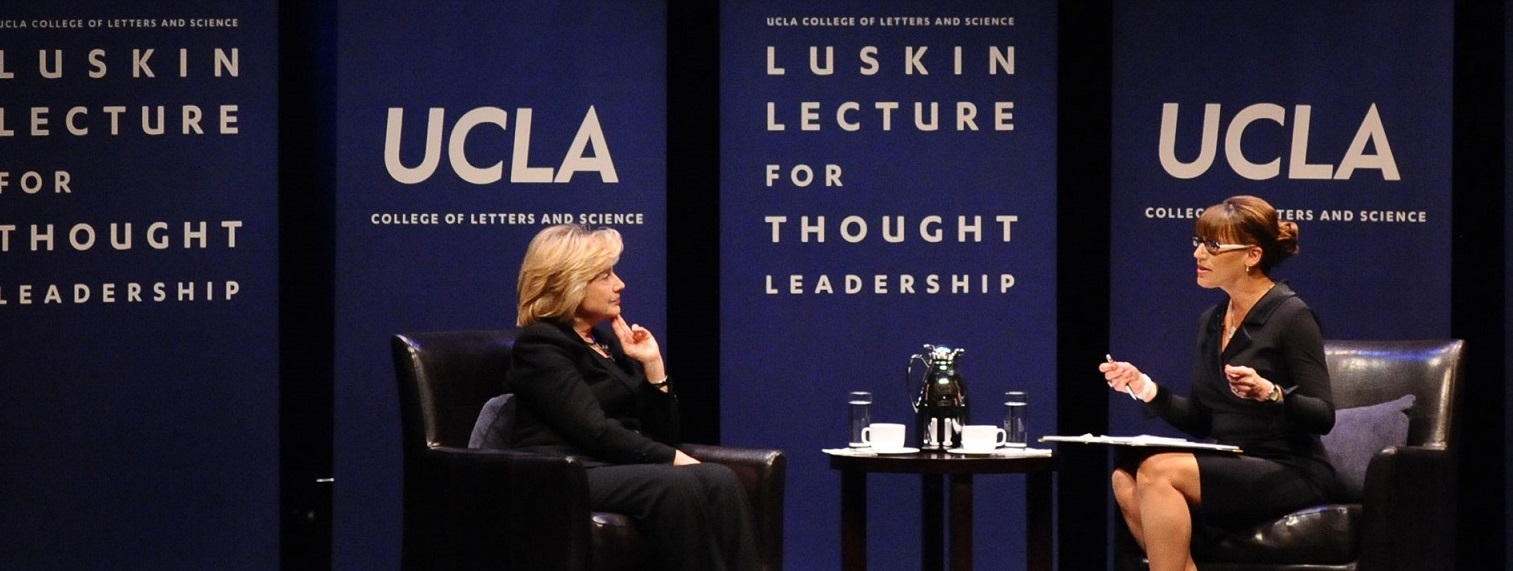They’re leaders in important social, environmental and political movements, finding ways to tackle the most pressing issues of our time, from climate change to gun violence. One even stood up to the Taliban at 15 years old and received the Nobel Peace Prize at 17.
从气候变化到枪支暴力,他们是重要的社会、环境和政治运动的领导者,寻找解决我们这个时代最紧迫问题的方法。其中一位甚至在15岁时就对抗塔利班(Taliban),在17岁时获得了诺贝尔和平奖。

And yet, as their elders, we roll our eyes, brush aside their generation as a whole, or, perhaps worse, actively demean them because, well, they’re kids.
然而,作为他们的长辈,我们翻白眼,无视他们,或者,也许更糟的是,因为他们是孩子,贬低他们。
As it turns out, grumbling about the younger generation is an age-old practice. It’s what UC Santa Barbara psychological scientist John Protzko terms the “kids these days effect.”
事实证明,对年轻一代的抱怨是一种由来已久的做法。这就是加州大学圣巴巴拉分校(UC Santa Barbara)的心理学家 John Protzko所说的“当今孩子效应”。
“It’s the exact same complaints time after time — they’re disrespectful, they don’t listen to their elders and they don’t like to work,” Protzko said, adding that these gripes cut across not only generations, but also cultures.
Protzko说:“他们一次又一次的抱怨——不尊重长辈,不听长辈的话,也不喜欢工作。”
It’s not as though society has been in objective decline since 340 BCE, Protzko said. Rather, he continued, the older generation’s tendency to bash its youths is a result of our faulty memories.
Protzko说,自公元前340年以来,社会并没有出现客观的衰退。相反,他继续说,老一代喜欢攻击年轻人是我们的错误记忆。
“There is a psychological or mental trick that happens that makes it appear to each generation that the subsequent generations are objectively in decline, even though they’re not,” said Protzko, whose research appears in the journal Science Advances. “And because it’s built into the way the mind works, each generation experiences it over and over again.”
Protzko的研究成果发表在《科学进展(Science Advances)》期刊上。他说:“每一代都有一种心理或心理上的错觉,让人觉得后代客观上在走下坡路,尽管事实并非如此。因为它是大脑固有的工作方式,每一代人都会一遍遍地经历它。”
Despite the ubiquity of this effect — or perhaps because of it — not much research has been conducted to investigate it. To suss out this psychological illusion, Protzko and fellow psychologist Jonathan Schooler devised a suite of five tests.
尽管这种影响无处不在——或者可能正因为如此——但没有多少研究对其进行调查。为了弄清这种心理错觉,Protzko和他的同事、心理学家Jonathan Schooler设计了一套五项测试。
“We first looked at how this relates to your own standing on a trait,” Protzko said. Across three specific traits — respect for authority, intelligence and enjoyment of reading — participants were asked how high they believe the children of today would rate when compared to the participants themselves as kids.
Protzko 说:“我们首先研究了这种情况与你立场之间的关系。”通过三个具体的特征——尊重权威、智力和享受阅读——参与者被问及他们认为现在的孩子与他们小时候相比有什么不同。
Across the board, it was clear that the higher the participants ranked themselves on those traits, the more likely they were to denigrate the kids based on those same traits, supporting the researchers’ “trait-specific” hypothesis.
很明显,参与者对这些特质的评价越高,他们就越有可能根据这些特质来诋毁孩子,这支持了研究人员的“特质特异性”假说。
“The more you respect authority as an adult, the more you think kids no longer respect their elders; the smarter you are, the more you think kids these days are getting dumber,” Protzko said. “And people who are well-read tend to think that kids these days no longer like to read.”
Protzko 说:“作为一个成年人,你越尊重权威,你就越觉得孩子们不再尊重他们的长辈;你越聪明,你就越觉得现在的孩子越来越笨;博览群书的人往往认为现在的孩子不再喜欢读书了。”
And with regard to intelligence, that’s particularly significant, Protzko noted, because objective evidence has demonstrated that youth are performing better on intelligence test because of Flynn effects (the measurable increase of IQ scores from generation to subsequent generation). “So it can’t be the case that the participants are picking up on objective truth,” he said.
Protzko指出,在智力方面,这一点尤其重要,因为客观证据表明,由于弗林效应(弗林效应是指智商分数下一代比上一代显著提高),年轻人在智力测试中表现得更好。他说:“所以,参与者可能不了解客观事实。”
So what’s behind our misjudgment of the generations that follow ours? Protzko blames our own faulty, biased memories.
那么,我们对后代的错误判断背后是什么呢?Protzko责怪道,是我们错误的、有偏见的记忆。
“We tend to think our memories are really good for the past,” he said, “but they aren’t.” To elucidate the effect of our memory on our attitudes toward kids these days, the researchers replicated the reading study and then added questions about the participants’ memories of how much they and their peers enjoyed reading as children. They also asked for their opinions on “adults these days” and their love of reading.
“我们倾向于认为我们的记忆对过去来说真的很好,”他说,“但事实并非如此。”为了阐明过去记忆对现在我们对待孩子态度上的影响,研究人员重复了阅读的研究,然后增加了问题,关于参与者记忆中,他和他们的同伴小时候有多喜欢阅读。他们还询问了他们对“现在的成年人”的看法和他们对阅读的喜爱的看法。
According to their results, the more well-read you are, the more you think you enjoyed reading as a child, and the more you think all kids enjoyed reading when you were a child. In turn, it appears to us that children today are objectively deficient.
根据他们的研究结果,你越博览群书,你就越觉得你小时候喜欢读书,你也就越觉得你小时候所有的孩子都喜欢读书。反过来,在我们看来,今天的儿童是有客观缺陷的。
“Basically, what we do is take our current standing on that trait and we impose it back in time,” Protzko explained. Not only that, he said, the opinion is extended to peers, so people who consider themselves to have been well-read as children remember children in general being that way. In addition, the responses indicating that adults enjoying reading as much as they did as children suggests that “participants are not sensing a constant generational decline, but instead believe that it is only uniquely children today who are deficient.”
Protzko解释说:“基本上,我们所做的就是用我们目前的立场来看待这种特质,并把它强加到过去。”不仅如此,他说,这种观点也适用于同龄人,所以那些认为自己在孩童时期就博览群书的人,通常会认为孩子都是这样的。此外,表明成年人和儿童一样喜欢阅读的回答表明,“参与者并没有感觉到代沟的持续减少,相反,他们认为只有今天的儿童才存在阅读缺陷。”
To further identify the effect of memory as a mediator, the researchers put participants through one final exercise. Participants were tested to see how well-read they were, but were given false feedback.
为了进一步确定记忆作为中介的作用,研究人员让参与者进行最后一次练习。研究人员对参与者进行了测试,看他们的阅读能力如何,但他们得到了错误的反馈。
“We told some of them they were in the top 33% of the national population or in the bottom 33% of the population,” Protzko said. “It turns out that doing that changes how they feel about their own standing about being well-read.” The feedback even went so far as to cause the participants to revise their memories of the past, so that when asked about their opinions on kids these days and their reading habits, those that scored “low” not only generalized their performance to kids of the past (e.g., kids before weren’t very well-read), but also softened their views on the supposed decline of kids these days with respect to reading.
Protzko说:“我们告诉其中一些人,他们属于全国人口的前33%或后33%。事实证明,这样做会改变他们对自己博览群书地位的看法。”该反馈甚至导致参与者修改过去的记忆,当被问及他们对现在的孩子和他们阅读习惯的意见时,那些得分“低”的参与者不仅将他们的表现概括为过去孩子的特性(例如,以前的孩子阅读能力不是很好),而且还软化了他们对现在孩子阅读能力下降的看法。
“These things aren’t necessarily happening consciously,” Protzko said of the phenomenon memory researchers call “presentism.” This bias, he added, is so ingrained in our memory systems that it’s unlikely we’ll ever stop thinking the kids these days represent a decline in our society.
“这些事情的发生不一定是有意识地,”Protzko在谈记忆研究者称之为“现实性”现象时提到。他补充说,“这种偏见在我们的记忆系统中根深蒂固,因而我们很大可能性认为现在的孩子代表着我们社会的衰落。”
“It’s a memory tic — you take what you presently are and you impose that on your memories,” he said, “It’s why the ‘decline’ seems so obvious to us. We have little objective evidence about what children were like, and certainly no personal objective evidence. All we have is our memory to rely on, and the biases that come with it.”
“这是一种记忆抽搐——你接受你现在的样子,并把它强加在你的记忆上,”他说,“这就是为什么‘衰退’对我们来说如此明显。我们几乎没有关于孩子应该是什么样子的客观证据,当然也没有个人的客观证据。我们所拥有的只是可以依赖的记忆,以及随之而来的偏见。”




